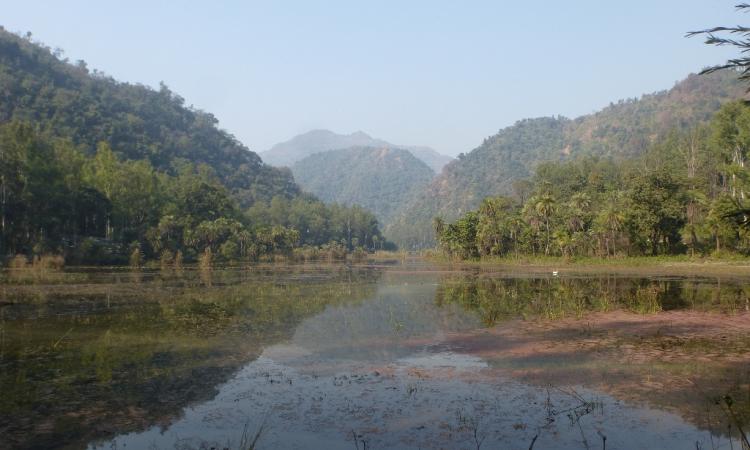
Negligence behind the degradation of Uttarakhand wetlands: WWF
According to a report by the Worldwide Fund for Nature (WWF), nearly 70 percent of wetlands in the state have degraded due to negligence. Excessive tourism pressure with trekkers camping at the site, spreading of filth and pollutants in the water body and extreme grazing pressure by shepherds have contributed to the destruction of these wetlands, according to WWF. WWF has submitted the report to the state government.
40 percent cut in water supply for polluting river
The Maharashtra Industrial Development Corporation (MIDC) has cut 40 percent of the water supply to the industrial plants at Taloja from February 1. The decision has been taken after the Maharashtra Pollution Control Board (MPCB) noticed that the chemical effluents from the common effluent treatment plant (CETP) at Taloja were polluting the Kasadi river. According to the reports, the industrial waste from the effluent treatment plant in Taloja industrial area has raised pollution levels in the Kasadi river to 13 times the standard limit. Also, there have been reports of 90 percent drop in the fish catch from the Kasadi river. Despite several complaints, no action has been taken so far.
Pakistan responsible for disputes in Indus Water Treaty: UNDP
According to the report of the United Nation Development Programme (UNDP), Pakistan has neglected to resolve the transborder water issues with India and has delayed presenting the case to the Indus Water Commission. Also, the report claims that the 40-year-old Indus Water Treaty between the two countries has been an outstanding example of conflict resolution but the scarcity of water in the basin states has made its survival appear weak. However, there are two issues that the treaty fails to address that include the division of shortages in dry years and the cumulative impact of storages on the flows of the Chenab river into Pakistan.
Lohit dam study gets approved
The Centre has approved the Lohit dam study carried out by the Water and Power Consultancy Services (WAPCOS). The 513-page report has ignored the downstream impacts of the hydel projects proposed on the Lohit river in Assam. The report has also ignored the famous pilgrimage spot, Parashuram Kunda. Moreover, the study claims that the water flow variation will have no impact on the Dibru-Saikhowa National Park without carrying out any study in the park.
TN unable to share its water with Kerala
The Tamil Nadu government has expressed its inability to share water with Kerala under the Parambikulam Aliyar Project (PAP) agreement. According to this agreement, the former is supposed to share 19.55 TMC of water every year with Kerala. However, this year, due to poor rainfall, Tamil Nadu has a shortfall of nearly nine TMC of water in 10 reservoirs coming under the PAP.
This is a roundup of important news from January 31 - February 5, 2017. Also, read the policy matters this week.